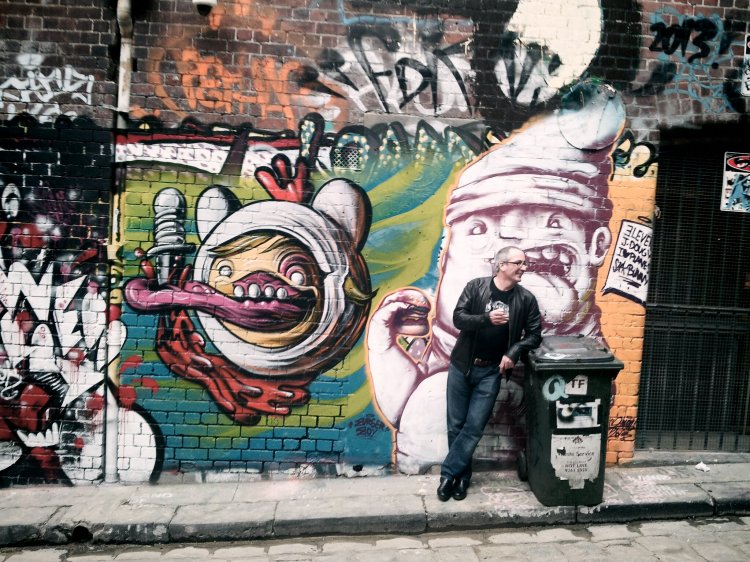Don’t ever ask Redbubble co-founder and chief executive Martin Hosking what his exit strategy is.
“I always get these annoying questions from VCs about what my strategy is,” said Hosking, an Aussie whose flight arrived just in time for a sit-down with VentureBeat.
“My strategy is to grow Redbubble.”
And growing it he is. Redbubble, with 80 employees split between offices in San Francisco and Melbourne, is an e-commerce play noted for its “street cred” and launched in 2007. It allows artists who work away from the mainstream — graffiti artists, cartoonists, designers, and photographers — to post and sell their work. Redbubble takes a percentage of each transaction.
Indeed, Redbubble is on track to double revenue this year to $80 million, Hosking said. Redbubble, he says, has been cash-flow positive for the last eight quarters. And get this: customized art shirts are the company’s top selling product.
Since its inception, 51,900 artists have successfully sold their creations on Redbubble and pulled in more than $15 million. Eight million unique viewers hit the site every month, and traffic is growing. Redbubble has raised a total of $8 million in venture capital, and because it’s cash-flow positive, it doesn’t have a burn rate.
“We’re at the convergence of e-commerce and social media. There is a rebirth of e-commerce,” now that the U.S. economy has remerged from its near implosion in 2008, Hosking said.
Incredibly, for a an e-commerce site hawking personalized pillows, t-shirts, ornate painted metal sheets, and yes, even canvases, Redbubble’s investor and advisor deck is stacked with several of the biggest Silicon Valley names you may or may not have heard of. Like serial entrepreneur Stan Chudnovsky, PayPal’s VP of growth, strategy, and special ops.
Chudnovsky was an early investor and chipped in about $100,000. He’s the legendary “positive hacker” who sold his big-data analytics company, Iron Pearl, to Paypal for millions last April. Prior to that, the Russian-born Chudnovsky co-founded social media platform Tickle, which he sold to Monster in 2004 for $100 million. He is also runs Oogalabs, an investment and advisory outfit.
Chudnovksy is a huge believer in what Redbubble’s e-commerce play is doing on the Internet.
“There are a couple of things I like,” said Chudnovsky from his hotel room in Switzerland during a late night phoner.
“Martin’s products speak for themselves, and he believes revenue will follow if the focus is first on the customer. This is a sequence you need to follow as opposed to a company you have heard of because of the hype but that has no revenues.”
Bebo founder Michael Birch is also an early investor. Like Chudnovsky, Birch is also a serial entrepreneur, and he sold Bebo, a social networking site, to AOL in 2008 for $850 million.
Redbubble is in the throes of introducing new products: Customized iPhone cases, silkscreened pillows, and print-on-demand canvases and metal. Even colorful totebags.
Redbubble’s success, Hosking says, is in the price points. A majority of items are priced below $100. And a majority of Redbubble customers are under 35, looking for fashion and art they want to call their own and that cannot be found in stores.
Redbubble faces stiff competition from a number of like-minded sites, in particular, Society6 and Threadless. But Hosking said he knows what the revenues of these two e-commerce plays are, and it pales to what Redbubble is pulling in.
The name of the game here, Hosking said, is anti-brands and selling items that look as though they were “found on the street.”
For the easy going Chudnovsky, Hosking’s formula is one that is winning.
“Martin made it clear that he’s in this for the long haul,” Chudnovsky said. “Redbubble is succeeding in bringing [artistic] personalization from the online world to the offline. More people want to wear things that are one of a kind, and Redbubble is working to make it happen.”


